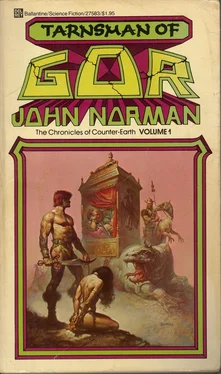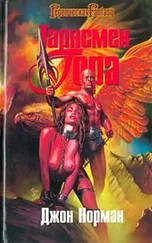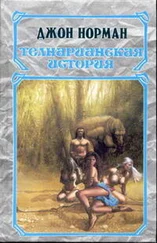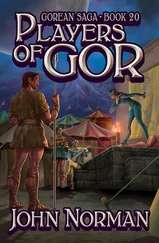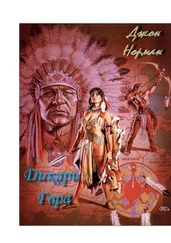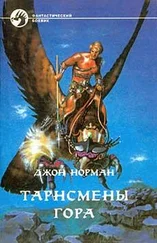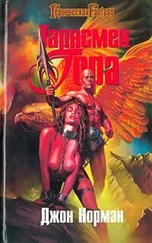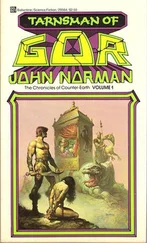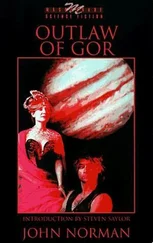John Norman
Tarnsman of Gor
(Chronicles of Counter-Earth-1)
Chapter 1
A Handful of Earth
MY NAME Is TARL CABOT. The name is supposed to have been shortened in the fifteenth century from the Italian surname Caboto. As far as I know, however, I have no connection with the Venetian explorer who carried the banner of Henry VII to the New World. Such a connection seems unlikely for a number of reasons, among them the fact that my people were simple tradesmen of Bristol, and uniformly fair — complexioned and topped with a blaze of the most outrageous red hair. Nonetheless, such coincidences, even if they are only geographical, linger in family memory — our small challenge to the ledgers and arithmetic of an existence measured in bolts of cloth sold. I like to think there may have been a Cabot in Bristol, one of us, who watched our Italian namesake weigh anchor in the early morning of that second of May, 1497.
You may remark my first name, and I assure you that it gave me quite as much trouble as it might you, particularly during my early school years, when it occasioned almost as many contests of physical skill as my red hair. Let us say simply that it is not a common name, not common on this world of ours. It was given to me by my father, who disappeared when I was quite young. I thought him dead until I received his strange message, more than twenty years after he had vanished. My mother, whom he inquired after, had died when I was about six, somewhere about the time I entered school. Biographical details are tedious, so suffice it to say that I was a bright child, fairly large for my age, and was given a creditable upbringing by an aunt who furnished everything that a child might need, with the possible exception of love.
Surprisingly enough, I managed to gain entrance to the University of Oxford, but I shall not choose to embarrass my college by entering its somewhat too revered name in this narrative. I graduated decently, having failed to astound either myself or my tutors. Like a large number of young men, I found myself passably educated, able to parse a sentence or so in Greek, and familiar enough with the abstractions of philosophy and economics to know that I would not be likely to fit into that world to which they claimed to bear some obscure relation. I was not, however, reconciled to ending up on the shelves of my aunt's shop, along with the cloth and ribbon, and so I embarked upon a wild, but not too wild, adventure, all things considered.
Being literate and not too dull, and having read enough history to tell the Renaissance from the industrial Revolution, I applied to several small American colleges for an instructorship in history — English history, of course. I told them I was somewhat more advanced academically than I was, and they believed me, and my tutors, in their letters of recommendation, being good fellows, were kind enough not to disabuse them of this illusion. I believe my tutors thoroughly enjoyed the situation, which they, naturally, did not officially allow me to know they understood. It was the Revolutionary War all over again. One of the colleges to which I applied, one perhaps somewhat less perceptive than the rest, a small liberal arts college for men in New Hampshire, entered into negotiations, and I had soon received what was to be my first and, I suppose, my last appointment in the academic world.
In tune I assumed I would be found out, but meanwhile I had my passage to America paid and a position for at least one year. This outcome struck me as being a pleasant if perplexing state of affairs. I admit I was annoyed by the suspicion that I had been given the appointment largely on the grounds that I would be faculty exotica. Surely I had no publications, and I am confident there must have been several candidates from American universities whose credentials and capacities would have far outshone my own, except for the desiderated British accent. Yes, there would be the round of teas and the cocktail and supper invitations.
I liked America very much, though I was quite busy the first semester, smashing through numerous texts in an undignified manner, attempting to commit enough English history to memory to keep at least a reign or so ahead of my students. I discovered, to my dismay, that being English does not automatically qualify one as an authority on English history. Fortunately, my departmental chairman, a gentle, bespectacled man, whose speciality was American economic history, knew even less than I did, or, at least, was considerate enough to allow me to believe so.
The Christmas vacation helped greatly. I was especially counting on the time between the semesters to catch up, or, better, to lengthen my lead on the students. But after the term papers, the tests, and the grading of the first semester, I was afflicted with a rather irresistible desire to chuck the British Empire and go for a long, long walk indeed, even a camping trip in the nearby White Mountains.
I borrowed some camp gear, mostly a knapsack and a sleeping bag, from one of the few friends I had made on the faculty — an instructor also, but in the deplorable subject of physical education. He and I had fenced occasionally and had gone for infrequent walks. I sometimes wonder if he is curious about what happened to his camp gear or to Tarl Cabot. Surely the administration of the college was curious, and angry at the inconvenience of having to replace an instructor in the middle of the year, for Tarl Cabot was never heard of again on the campus of that college.
My friend in the physical education department drove me a few miles into the mountains and dropped me off. We agreed to meet again in three days at the same place. The first thing I did was check my compass, as if I knew what I was up to, and then proceeded to leave the highway well behind me. More quickly than I realized, I was alone and in the woods, climbing. Bristol, as you know, is a heavily urbanized area, and I was not well prepared for my first encounter with nature. Surely the college, though somewhat rural, was at least one of the outworks of, say, material civilization. I was not frightened, being confident that walking steadily in any given direction would be sure to bring me to one highway or another, or some stream or another, and that it would be impossible to become lost, or at least for long. Primarily, I was exhilarated, being alone, with myself and the green pines and patches of snow.
I trudged along for the better part of two hours before I finally yielded to the weight of the pack. I ate a cold lunch and was on my way again, getting deeper into the mountains. I was pleased that I had regularly taken a turn or two around the college track.
That evening I dropped my pack near a rock platform and set about gathering some wood for a fire. I had gone a bit from my makeshift camp when I stopped, startled for a moment. Something in the darkness, to the left, lying on the ground, seemed to be glowing. It held a calm, hazy blue radiance. I put down the wood I had gathered and approached the object, more curious than anything else. It appeared to be a rectangular metal envelope, rather thin, not much larger than the normal envelope one customarily uses for correspondence. I touched it; it seemed to be hot. My hair rose on the back of my head; my eyes widened. I read, in a rather archaic English script inscribed on the envelope, two: words — my name, Tarl Cabot.
It was a joke. Somehow my friend had followed me, must be hiding somewhere in the darkness: I called his name, laughing. There was no answer. I raced about in the woods a moment, shaking bushes, batting the snow from the low-hanging branches of pines. I then walked more slowly, more carefully, being quiet. I would find him!
Some fifteen minutes passed, and I was growing cold, angry. I shouted to him. I widened my search, keeping that strange metal envelope with its blue ambience the center of my movements. At last I realized he must have planted the odd object, left it for me to discover, and, was probably on his way home by now or was perhaps camping somewhere nearby. I was confident he was not within earshot or he would have eventually responded. It was no longer funny, not if he was near.
Читать дальше
